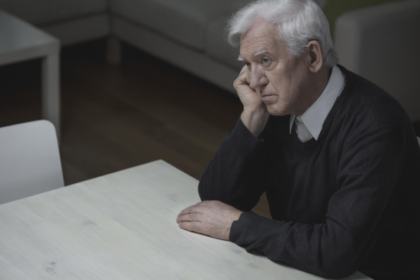Depression can impact your feelings, thoughts, and ability to manage daily activities, affecting your overall well-being. It involves a persistent feeling of sadness or a loss of interest. This condition extends beyond emotional distress, sometimes manifesting in physical symptoms that impact overall health. Here is more information about the connection between depression and chronic illness:
Leads to Physical Problems
The immune system is a complex network, and its function can be altered by mental health states. Depression is associated with increased inflammation throughout the body. Chronic inflammation may lead to numerous health problems, such as heart disease and other systemic conditions.
Depression also affects sleep patterns, which are necessary for physical recovery. You might sleep too much or too little. A lack of restorative sleep weakens the body’s defenses, making you more susceptible to illness over time. Poor sleep disrupts hormonal balance, and it also interferes with metabolic processes.
Energy levels may decrease with this condition. This fatigue makes it difficult to maintain an active lifestyle, and physical activity is a key component of good health. A sedentary lifestyle may contribute to a range of physical health problems. This creates a cycle where low energy from depression leads to inactivity, which then worsens physical health.
Causes Chronic Pain
Depression and pain may share some of the same neural pathways in the brain. When these chemicals are imbalanced, your sensitivity to pain might increase. This creates a link between depression and the physical sensation of pain. The brain processes emotional and physical pain in similar regions.
The experience of living with depression makes managing chronic pain more difficult. A low mood reduces your motivation to engage in activities that could alleviate pain, such as physical therapy or exercise. This creates a difficult cycle. Pain can worsen depressive symptoms, and this condition may intensify the perception of pain.
Triggers Headaches
Depression is a known trigger for certain types of headaches. Tension headaches feel like a constant ache or pressure around the head. While the exact mechanism is not fully understood, it involves muscle tension in the neck and scalp. Migraines, which are more severe, may also be linked to depression. Both conditions involve similar brain chemicals and nerve pathways. Depression might lower the threshold for a migraine attack to occur. These changes may occur:
- Sleep disturbances from depression can trigger headaches.
- Increased stress hormones contribute to headache frequency.
Impacts Weight
Changes in appetite are a typical symptom of depression. Some people experience a significant increase in appetite, leading to weight gain. This happens because they may turn to food for comfort. Conversely, others lose their appetite completely and experience unintentional weight loss. This loss of interest in food can lead to nutritional deficiencies.
Get Treated for Depression
Addressing your mental health is a part of managing your overall physical well-being. These treatments include therapy, medication, or lifestyle changes, and they aim to manage symptoms effectively. If you are experiencing symptoms of depression, seeking a medical evaluation is a proactive step. Contact a qualified healthcare provider to discuss your symptoms and explore available treatment paths.









